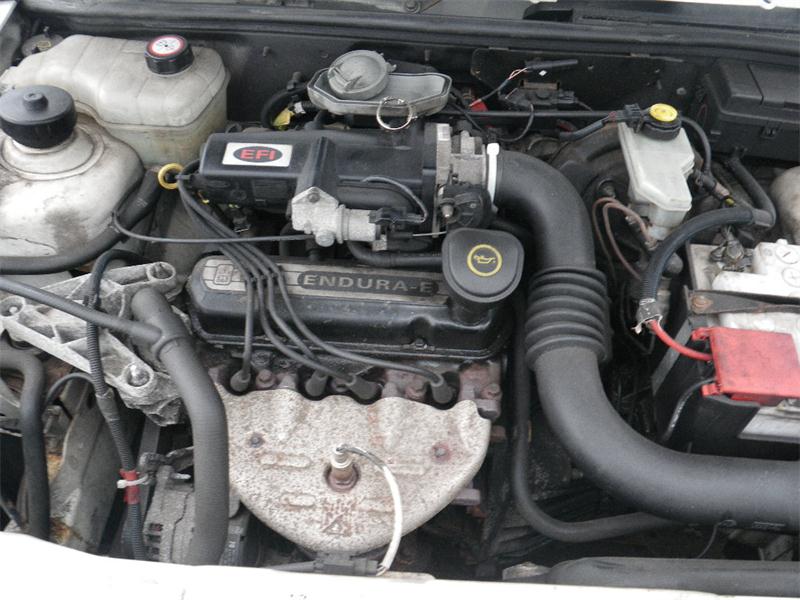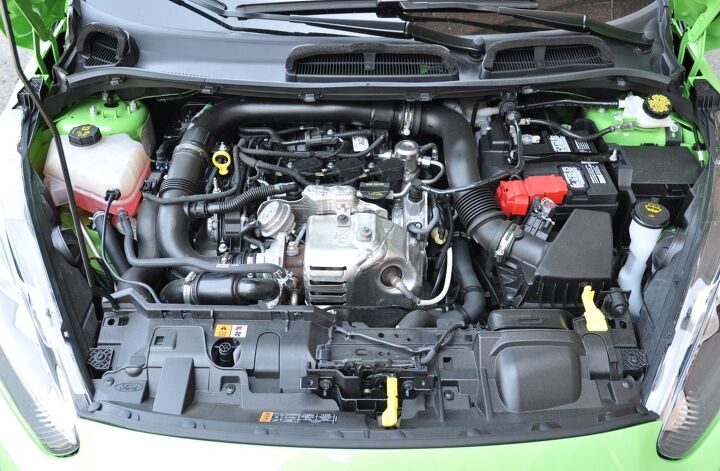Discover the Latest Ford Fiesta Engine Upgrades for Enhanced Power
Discover the Latest Ford Fiesta Engine Upgrades for Enhanced Power
Blog Article
The Future of Engines: Innovations Driving Lasting Power Solutions
As the vehicle sector browses the critical change towards sustainability, the future of engines is progressively specified by groundbreaking technologies. Electric engine advancements, together with encouraging growths in hydrogen gas cells and biofuels, are improving the landscape of power remedies.
Electric Engine Advancement
The development of electric engine advancements represents an essential change in the automotive and aerospace industries, driven by the urgent need for sustainable alternatives to nonrenewable fuel sources. This transition is characterized by significant developments in battery innovation, power electronics, and electric motor style, which collectively improve the effectiveness and performance of electric engines.
Current advancements have actually caused the development of lighter, much more energy-dense batteries, such as lithium-silicon and solid-state batteries, which guarantee longer varieties and shorter charging times. In addition, enhancements in electrical motor effectiveness, such as the use of permanent magnets and progressed cooling systems, allow electric engines to operate effectively under differing problems. These enhancements not only enhance automobile performance yet additionally add to a reduction in total power consumption.
Moreover, the integration of innovative software program algorithms has maximized energy management in electrical cars, permitting regenerative stopping and anticipating charging techniques. As makers progressively embrace electric propulsion, the auto and aerospace markets are witnessing a standard change towards greener technologies. This advancement not only fulfills regulative demands however additionally aligns with consumer preferences for eco-friendly transport remedies, strengthening electrical engines as a foundation of future lasting movement.
Improvements in Biofuels
As the automobile and aerospace industries progressively focus on lasting energy sources, innovations in biofuels emerge as a complementary service to electrical engines. Biofuels, originated from organic products such as plants, waste, and algae, provide an innovative avenue for minimizing greenhouse gas exhausts and reliance on nonrenewable fuel sources.
Recent research study has actually concentrated on boosting the efficiency and sustainability of biofuel production. Second-generation biofuels use non-food feedstocks, decreasing competition with food supply and decreasing environmental effect. Additionally, advancements in synthetic biology have enabled the engineering of microorganisms to create biofuels a lot more effectively, resulting in higher returns and lower production costs.
In addition, the growth of drop-in biofuels permits for smooth assimilation right into existing facilities, enabling a smoother shift for industries typically depending on nonrenewable fuel sources. ford fiesta engine. These gas can be used in current engines without adjustments, facilitating their adoption throughout numerous fields
Investments in biofuel modern technology, in addition to helpful plans, are necessary to drive development and scalability. As the global area looks for to deal with climate change, biofuels offer a practical, instant remedy that straightens with the overarching goal of sustainability in transportation and aeronautics.
Hydrogen Gas Cell Technology
An expanding number of researchers and business are checking out hydrogen fuel cell modern technology as a practical option to traditional source of power in transport and energy systems. This modern technology transforms chemical power from hydrogen into electricity via an electrochemical reaction, with water as the only by-product, making it an eco-friendly option.
The core of hydrogen gas cells is the fuel cell stack, where hydrogen molecules are split right into protons and electrons. The circulation of electrons creates power, while protons move with a membrane to integrate with oxygen from the air, creating water. This process leads to high efficiency and low exhausts, placing hydrogen fuel cells as a critical player in the change to sustainable energy.
Substantial developments have actually been made in improving the sturdiness and efficiency of fuel cells, along with reducing costs via ingenious production strategies. Additionally, the growth of hydrogen manufacturing methods, such as electrolysis powered by sustainable power resources, enhances the sustainability of the total system. As infrastructure for hydrogen refueling expands and manufacturing methods come to be more my sources effective, hydrogen gas cell modern technology holds terrific assurance for decarbonizing various markets, including durable transportation and stationary power generation.
Hybrid Solutions and Their Effect
Hybrid systems stand for a considerable development in sustainable engine technology, combining standard interior combustion engines with electric propulsion to maximize energy efficiency and reduce emissions (ford fiesta engine). This twin strategy enables automobiles to use both source of power, enabling better versatility in energy consumption and reducing dependence on nonrenewable fuel sources

In addition to ecological benefits, hybrid systems offer customers a viable shift in the direction of fully electric automobiles. They minimize array anxiety by incorporating the benefit of fuel with the advantages of electrical propulsion, making them an attractive choice for a wider target market.
The Role of AI in Engine Style
Leveraging innovative algorithms and artificial intelligence techniques, the vehicle sector is increasingly integrating synthetic intelligence (AI) into engine style procedures. AI boosts the efficiency and effectiveness of style by examining substantial datasets to identify ideal setups and efficiency parameters. This capability enables designers to replicate different operating conditions and anticipate engine actions under numerous scenarios, substantially reducing the time and price associated with traditional prototyping techniques.
Moreover, AI facilitates the advancement of sophisticated materials and combustion processes tailored for sustainability. By optimizing fuel efficiency and reducing emissions, AI-driven designs straighten with global initiatives aimed at reducing the carbon impact of auto engines. Artificial intelligence formulas can likewise anticipate maintenance demands, resulting in improved integrity and long life of engine elements.
Furthermore, AI contributes in the integration of electrification technologies, such as crossbreed systems, where it can enhance battery administration and energy recuperation procedures. As the market moves in the direction of even more lasting power remedies, the function of AI in engine design becomes significantly crucial, driving technology and boosting the performance of future engines. Inevitably, the cooperation between AI and engine layout declares a new period of smarter, cleaner, and a lot more efficient auto technologies.

Verdict
To conclude, the future of engines is being shaped by a convergence of cutting-edge modern technologies that prioritize sustainability. Electric engine developments, biofuel advancements, hydrogen fuel cells, and hybrid systems collectively add to a significant reduction in discharges and ecological impact. Additionally, the combination of expert system in engine layout boosts performance and efficiency. These transformative remedies emphasize a dedication to developing a cleaner, a lot more lasting auto landscape, inevitably profiting both culture wikipedia reference and the atmosphere.
Electric engine developments, along with promising advancements in hydrogen fuel cells and biofuels, are improving the landscape of power services. Additionally, renovations in electrical motor performance, such as the use of irreversible magnets and progressed cooling down systems, allow electric engines to operate efficiently under varying problems. By enhancing fuel performance and decreasing exhausts, AI-driven styles align with international efforts intended at minimizing the carbon footprint of automotive engines. As the sector moves in the direction of more lasting power options, the use this link role of AI in engine layout becomes increasingly important, driving development and boosting the performance of future engines. Electric engine advancements, biofuel growths, hydrogen fuel cells, and crossbreed systems collectively add to a considerable decrease in emissions and ecological influence.
Report this page